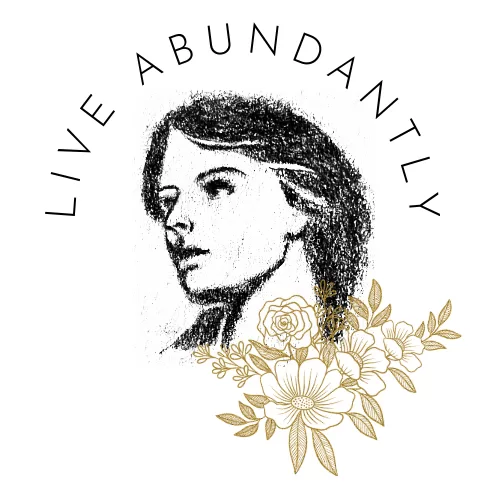Part 2: How to Get Things Done and Become an Effective Person
Learning How to Be More Consistent

In the first part of this two-part series, ‘Shifting Our Mindset Around New Initiatives“, the article discusses how to overcome self-doubt. It dove into how you can shift your mindset around starting new projects or making a change in your life. While getting started is one thing, keeping the momentum going is another. We all know that consistency is key, and yet many of us struggle with how to be more consistent with new habits. So how do you become the kind of person who’s able to not only start something but make it sustainable long term?
While it may look different from one day to the next, there are several strategies that any of us can use to learn how to be more consistent. Counterintuitive to what many believe, they usually don’t involve creating strict routines or showing up perfectly every day.You are far more likely to be successful if you are flexible and intuitive in your approach.
But before we get into any of the strategies, keep this in mind: Your ability to follow through with what you say you will do is the reputation that you build with yourself. This is one of the most critical things that we carry with us in our lives because it shapes how you see yourself. It determines the confidence you have in yourself to do small things. Your ability to see through small things also determines your confidence to do important things. For this reason, it’s essential to learn how to be more consistent and cultivate this skill in our lives.
Set Achievable Tasks
When you assign yourself a new task, make sure that it’s achievable for you. Don’t start with a goal that you know you’ll struggle with, or have failed to accomplish many times in the past. If you struggle with consistency, setting difficult tasks will only further reinforce the behavior of starting and giving up. Instead, build trust in yourself by choosing easy tasks – especially in the beginning. Focus on creating the habit of doing what you say you’re going to do. It doesn’t matter how small or innocuous it feels, if you committed to it, see it through.
This point is well illustrated in a passage from The Richest Man in Babylon by George Clason. In it, a character named Arkad has built up great wealth for himself through steady actions throughout his lifetime. When his friends comment that he must have had great willpower, he says, “Do you think willpower gives a man the strength to lift a burden the camel cannot carry, or to draw a load the oxen cannot budge? Willpower is but the unflinching purpose to carry a task you set for yourself to fulfillment.” Later he adds, “Therefore, I am careful not to start difficult and impractical tasks, because I love leisure.”
Understanding this is critical if you want to learn how to be more consistent. Set for yourself small and attainable tasks so you mitigate the risk of failing. This will help you rebuild your reputation with yourself. As you grow in the practice of discipline and learn how to be more consistent, you’ll be able to take on larger challenges. It may feel that progress is slow, but it will get you much further. What you build slowly will last far longer.
“Therefore, I am careful not to start difficult and impractical tasks, because I love leisure.”
Reduce Friction
By now, most of us have heard this before, but it bears repeating: Reduce barriers that prevent you from starting the activities you set your mind to. When learning how to be more consistent, you must eliminate guesswork and friction. This will reduce the mental load around daily decision-making and allow you to dedicate more energy toward your goals. Figure out the “tactical” details of any task ahead of time, so that you can start your work as effortlessly as possible. Determine your framework, pick a time of day, and set up your environment to make it conducive to the task at hand.
For example, if you’re trying to cook every day, make a meal plan for the week. This will ensure you don’t have to make decisions every day about what you’ll cook and what groceries you need. Instead, these things are put into autopilot, reducing your chances of relapsing into takeout on days you feel mentally drained. Or, if you’re trying to grow a business, decide your plan for the coming day or week ahead of time. This way you don’t spend mental energy constantly evaluating where your time goes and what to do next. You simply must carry out the tasks you set for yourself. In this case, autopilot is your friend.
Work with your energy peaks
Understand your energy levels throughout the day. When are you most suited for the task you’re trying to achieve? For example, if you’re like me and need a clear head to write, don’t put it off until after work. Trying to write when you’re exhausted and have a cynical attitude from a bad day may not be wise. However, you may find it’s a good time to go for a run because it lets you blow off steam and restores your energy after a long day. In the meantime, you could shift creative tasks – like writing – to a different time. Try early mornings when your mind is fresh, or late evenings when you’ve had the chance to unwind.
Be thoughtful in how you structure your day to focus on the things you want to prioritize. Working with your energy peaks and sloughs will be far more productive than constantly fighting against them.
Set lower limits
Set bookends around the amount of time or energy you invest in your activity every day. This means you need to decide what is the minimum effort you need to put in every day. Having a minimum ensures that no matter how you feel, you show up. It can be low – even to the point where you question if it’s worth it – but it puts you in action. This is critical because sometimes just the act of performing the task can change your mindset or energy. But more importantly, even if it doesn’t, it reinforces the habit of starting. This is critical because starting is often the biggest hurdle.
In the case of exercise, if the goal is to run every day, decide on your minimum before you start. Maybe your minimum is that you run at least 10 minutes. Or it might be walking your typical route. Whatever it takes to get you to show up – even on bad days. If it’s a more creative task or a skill you’re trying to develop, break it down into bare-bone components. For example, if you’re learning to play an instrument, tell yourself you must do your warm-ups at the very least.
When you’re learning how to be more consistent, remember: Not every day has to look the same. You don’t have to show up perfectly every day, you just have to show up. This approach prevents overwhelm when we just don’t have the energy to match the pace of previous days.
Set upper limits
On the other side of the same coin, you should set an upper limit for the activity each day. While it may feel like you should make as much progress as you can on good days, overdoing it will exhaust you. You’re more likely to burn out. This will hurt your momentum and possibly kill your drive all together. ‘
Instead, decide on the maximum amount of time or energy that you can put into something each day. Once you reach it, stop, and know that you will continue tomorrow. I’ve personally found setting an upper limit to be especially important for tasks I don’t want to do. This approach limits me from doing as much as possible to just ‘get it out of the way’ and keeps the task manageable.
Once again, The Richest Man in Babylon imparts an insightful lesson on how to be more consistent. Arkad says, “Should I say to myself, ‘For a hundred days as I walk across the bridge into the city, I will pick from the road a pebble and cast it into the stream,’ I would do it.” He explains that if he forgets to do this on the seventh day, he won’t throw in two pebbles on the eighth day. Instead, he would retrace his steps and cast the pebble. Neither would he tell himself on the twentieth day that this is useless and throw a handful of pebbles into the stream just to be done with it. Instead, he says, “When I set a task for myself, I complete it.”
Don’t fall into the temptation of overcompensating to ‘make up for lost time’ or ‘get something over with’. Come back to it every day, slowly and steadily. Complete the task that you set for yourself.
“When I set a task for myself, I complete it.”
Make it Enjoyable & Create Short-Term Rewards
Of course, it’s important to have the discipline to do something on good days and bad. But it’s also important to develop a generally positive view of something that you engage in regularly. Making meaningful change and progress in life through sheer willpower is often unsustainable. Instead, take it slow, experiment, and find ways to make it enjoyable.
If you’re trying to create a workout routine and choose to wake up at 5 a.m. despite being exhausted, this will be a really hard habit to maintain. Instead, try fitting it in after work when you need an energy boost. Find a trail that takes you to a beautiful spot you enjoy. Now you’ve created short-term rewards to motivate you. Your energy is renewed, and you get to experience beauty.
By approaching any endeavor in a more explorative and playful way, you’ll begin to develop positive emotions toward it. You’ll find yourself wanting to exercise – or do whatever activity you decide on. Not because of the long-term goal of becoming fit, but because of the immediate benefits you experience every day. It shifts the dynamic from something you should do to something you want to do. It also helps create resilience through the inevitable setbacks because you enjoy having these activities as a part of your life. Using your creativity to reimagine daily activities makes life more compelling, which in turn enables you to develop consistency more easily.
Rigidity is not Consistency
While these structures can help develop consistency in our lives, it’s important to recognize that this does not mean creating rigid routines that then become signposts of our failure when we’re unable to carry them out perfectly. Instead, seek to establish rhythms and understand that there will be ebbs and flows. These structures act as anchors. But life is dynamic and so are we. As women who are learning how to be more consistent, this point may be especially important. We must leave space to be intuitive and to work with the ebbs and flows of our energy as well as the demands of daily life.
Allowing yourself to be flexible is key to learning how to be consistent because it lightens the pressure and guilt under which we’re more likely to break. Everything we do will come with its seasons. Some days will be exciting and energizing. Other days require more grit and determination. Some days you’ll fall and brush it off. And some days, you’ll simply need to rest. Instead of dwelling on past moments that don’t live up to our expectations, learn to fully embrace the current moment ahead of you. Continue to show up each day and you’ll look back to see you’ve built something that lasts.

2 comments